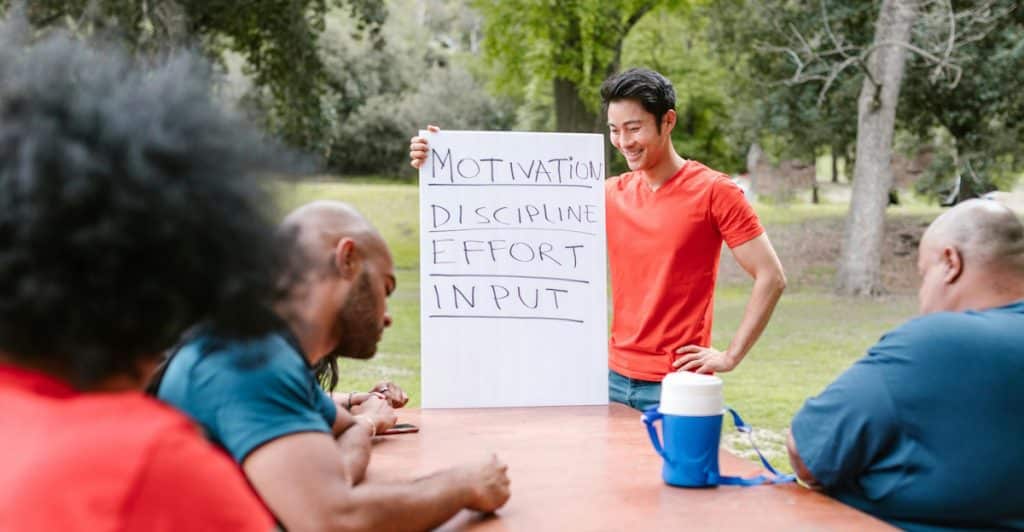
Loneliness among men has evolved with changing societal norms, digital dating trends, and shifts in modern masculinity. More than ever, men aged 25 to 50 grapple with isolation, impacting emotional well being and relationship satisfaction. Fortunately, handling loneliness effectively is achievable by incorporating actionable strategies and a proactive mindset. Explore these five practical approaches to combat loneliness and enhance your overall emotional health.
Way # 1 Embrace Digital Connections Wisely

In the digital age, dating apps and online communities have transformed relationships and social interactions. To effectively handle loneliness, choose platforms intentionally that align with your genuine interests and relationship goals. Rather than endless swiping, invest time in online spaces fostering meaningful connections and authentic conversations. Prioritize quality interactions over quantity to build stronger emotional ties.
Way # 2 Schedule Regular Social Activities

Consistency in social interaction significantly mitigates feelings of loneliness. Make a deliberate effort to schedule recurring meet ups or activities, such as joining sports teams, hobby groups, or volunteering. Shared interests cultivate deeper bonds and offer natural opportunities to form lasting friendships. Regular social events also create structure and anticipation, reducing isolation.
Way # 3 Invest in Emotional Health Practices

Modern masculinity embraces emotional awareness as a strength. To tackle loneliness effectively, adopt practices such as journaling, mindfulness meditation, or seeking professional therapy. Engaging proactively with your emotional health enhances your capacity for deeper connections and improved mental wellness. Addressing underlying emotional challenges reduces loneliness over time.
Way # 4 Maintain Consistent Communication Habits

Effective communication is vital for combating loneliness and nurturing relationships. Initiate regular check ins with family, friends, or partners, even when you feel disconnected or hesitant. Open, honest conversations help establish trust and emotional intimacy. Make small yet consistent efforts to communicate your feelings and maintain ongoing dialogue, significantly reducing feelings of isolation.
Way # 5 Build Meaningful Rituals and Routines

Creating personal rituals and routines strengthens your emotional foundation and reduces loneliness. Consider starting traditions like weekly dinners with friends, morning walks, or daily check ins with loved ones. Meaningful rituals create predictability, connection, and a sense of community, fostering stronger relationships and consistent emotional support.
Cultivate Friendships Beyond Romance

While dating and romantic relationships often dominate relationship trends, friendships remain a powerful antidote to loneliness. Prioritize platonic connections by actively nurturing friendships through shared experiences and mutual support. Friendships offer essential emotional anchors during tough times, enriching your life beyond romantic engagements.
Learn to Be Comfortable Alone

Ironically, becoming comfortable with solitude helps manage loneliness. Engage in activities you genuinely enjoy alone, such as reading, fitness, or personal hobbies. Solitude can become a source of strength, fostering self awareness and emotional independence, ultimately reducing the anxiety associated with being alone.
Navigate Seasonal Loneliness Proactively

Wedding seasons, summer dating pressures, and holiday stresses can heighten feelings of loneliness. Be proactive by planning social engagements or trips ahead of these periods. Anticipating seasonal triggers allows you to manage emotional stress effectively and maintain balanced mental health throughout challenging times.
Set Realistic Relationship Goals

Unrealistic expectations about relationships, especially influenced by digital dating culture, can exacerbate loneliness. Clearly define realistic relationship goals based on genuine values and personal compatibility rather than societal pressures or trends. This approach fosters healthier connections and lessens disappointment, leading to more fulfilling relationships.
Engage in Community Activities

Community involvement is highly effective in reducing loneliness and enhancing emotional wellness. Participate in local events, community projects, or volunteer opportunities. Connecting with your community provides a sense of belonging, purpose, and meaningful interactions that counteract feelings of isolation.
Seek Professional Support When Needed

Loneliness can significantly impact mental health, making professional support essential. Therapy or counseling provides valuable tools and strategies tailored specifically to your emotional needs. Professionals help unpack deeper issues and offer personalized coping mechanisms, fostering better emotional resilience and healthier relationships.
Leverage Technology for Positive Connections

Utilize technology positively by engaging with online communities or virtual events that align with your interests. Virtual platforms like hobby focused forums or educational webinars offer opportunities for genuine interactions and personal growth. Harnessing technology intentionally reduces loneliness by connecting you to like minded individuals globally.
Foster Vulnerability in Relationships

Building deeper connections involves embracing vulnerability. Modern masculinity emphasizes openness and emotional honesty as strengths. Practice sharing genuine feelings and vulnerabilities with trusted friends or partners, significantly strengthening emotional bonds and reducing loneliness.
Make Handling Loneliness a Priority

Combatting loneliness effectively requires proactive strategies and intentional actions. Implement these practical insights consistently to build meaningful relationships, improve emotional health, and navigate modern relationship challenges confidently. Start today, prioritize your emotional wellness, and embrace a connected, fulfilling life.






Ask Me Anything